Developing artificial intelligence in a "narrow corridor"
Minister of Science and Technology Nguyen Manh Hung emphasized the need to orient the development of artificial intelligence with intelligence and responsibility so that AI can truly serve humanity.
“Artificial intelligence is navigating a narrow corridor. Navigating this narrow corridor is the art of balancing global and local levels, cooperation and sovereignty , large technology corporations and startups, technology and applications, use and mastery, creation and control, and infrastructure,” Minister Nguyen Manh Hung affirmed.

Minister of Science and Technology Nguyen Manh Hung. (Photo: Nguyen Trung)
At the Ministerial Roundtable on Artificial Intelligence Governance held on the morning of October 27th, Minister Nguyen Manh Hung shared Vietnam's vision, stating that Vietnam believes sustainable AI development needs to be built on four main pillars: a strong AI institutional framework, modern AI infrastructure, AI talent, and a human-centered AI culture.
Vietnam is also committed to developing AI that is human-centered, open, secure, sovereign, collaborative, inclusive, and sustainable. In particular, it aims to develop an open-source AI ecosystem to enhance transparency, collaboration, and innovation.


Ministerial Roundtable Conference on Artificial Intelligence Governance. (Photo: Nguyen Trung)
An open-source AI ecosystem will enable smaller nations and startups to jointly develop and master advanced technologies.
Jonathan Baker, Head of the UNESCO Office in Vietnam, stated that Vietnam has a favorable environment for the development of artificial intelligence – evidenced by the key findings from the AI Readiness Assessment Report (RAM) in Vietnam.
This report is part of UNESCO's recommendations on AI ethics, designed to help countries assess their AI capabilities and guide their development across five dimensions: legal, social, educational, economic , and infrastructure.
The report acknowledges Vietnam's remarkable progress in legal matters, economic aspects, research, and education.

The launch ceremony for the Ethical Readiness Assessment Report in Artificial Intelligence (RAM). (Photo: Nguyen Trung)
However, alongside the achievements, Jonathan Baker also pointed out challenges and gaps that need to be addressed, particularly the shortage of highly skilled AI professionals.
"Access to STEM fields in Vietnam remains limited for women, ethnic minorities, and people with disabilities. There are still opportunities to close the gender gap in AI and digital technology in general," said Baker.
UNESCO has put forward a series of strategic recommendations on AI development in Vietnam, such as strengthening the legal framework for deeper integration of AI ethics principles and establishing a national committee on AI ethics to ensure effective monitoring and coordination.
Regarding human resources, it is necessary to promote public awareness of AI ethics, while attracting and developing AI talent with both technical and ethical capabilities. In terms of technology, the report recommends establishing centers of excellence in strategic technologies and continuing investment in large-scale data centers.

Jonathan Baker, Head of the UNESCO Office in Vietnam. (Photo: Nguyen Trung)
Finally, Jonathan Baker emphasized the importance of building an innovative and ethical AI startup ecosystem by promoting private investment and supporting startups, especially those led by women and minority groups.
Enhancing human capacity in data source control is key.
Moderating the panel discussion "Shaping Contributions to Global Artificial Intelligence Governance," Ms. Pauline Tamesis, Resident Coordinator of the United Nations in Vietnam, stated: "The development and application of AI will continue to position Vietnam as one of the leading countries in artificial intelligence in the world."
Ms. Inarukundo Francine, Permanent Secretary of the Ministry of Finance of Burundi, stated that the country is placing AI at the heart of its national development strategy and expressed a desire to further deepen cooperation with Vietnam. Burundi is particularly keen to cooperate with Vietnam in sharing expertise, transferring technology, training young talents, and jointly establishing innovation laboratories.
At the conference, international delegates shared many lessons learned and recommendations on the development and application of AI technology. Mr. Julien Guerrier, Ambassador of the European Union to Vietnam, said that the EU's AI strategy is built on three pillars: excellence, trust, and international cooperation.
The EU's approach aims to promote research and industrial capacity while ensuring a legal framework for the responsible development of AI. "The EU is also focused on addressing the risks associated with AI generation," Julien affirmed.

Ms. Pauline Tamesis, United Nations Resident Coordinator in Vietnam (far right), and Mr. Julien Guerrier, European Union Ambassador to Vietnam (second from right), attend the panel discussion. (Photo: Nguyen Trung)
The Australian Ambassador to Vietnam shared that, starting in August 2024, all Australian federal agencies will be required to designate an official responsible for AI and publish a transparency statement regarding the use of this technology.
According to him, two important lessons learned from practical experience are that human oversight is always essential (even with the best systems) and AI regulations need to be consistent to avoid overregulation.
Ambassador Philipp Agathonos of Austria to Vietnam warned that many AI systems currently use low-quality data, blurring the lines between genuine and fake. According to him, improving human capacity in controlling data sources is a key factor in ensuring the reliability of AI.
He expressed concern about the monopoly on high-quality chips, calling on countries to cooperate to balance the supply chain and prevent chip production from falling into the hands of a few companies.



The week-long exhibition showcased many cutting-edge technology products and software applications utilizing artificial intelligence. (Photo: Nguyen Trung)
From October 27th to 29th, the Vietnam International Digital Week 2025 (VIDW 2025) took place in Ninh Binh and Hanoi. The event was organized by the Ministry of Science and Technology in coordination with the People's Committee of Ninh Binh province.
This year's event highlights strategies, policies, and legal frameworks to ensure the development and governance of AI in a safe, transparent, and responsible manner.
Source: https://vtcnews.vn/bo-truong-nguyen-manh-hung-ai-di-trong-hanh-lang-hep-de-phuc-vu-con-nguoi-ar983570.html



![[Photo] Closing Ceremony of the 10th Session of the 15th National Assembly](/_next/image?url=https%3A%2F%2Fvphoto.vietnam.vn%2Fthumb%2F1200x675%2Fvietnam%2Fresource%2FIMAGE%2F2025%2F12%2F11%2F1765448959967_image-1437-jpg.webp&w=3840&q=75)
![[Photo] Prime Minister Pham Minh Chinh holds a phone call with the CEO of Russia's Rosatom Corporation.](/_next/image?url=https%3A%2F%2Fvphoto.vietnam.vn%2Fthumb%2F1200x675%2Fvietnam%2Fresource%2FIMAGE%2F2025%2F12%2F11%2F1765464552365_dsc-5295-jpg.webp&w=3840&q=75)



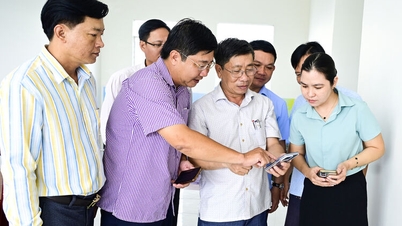

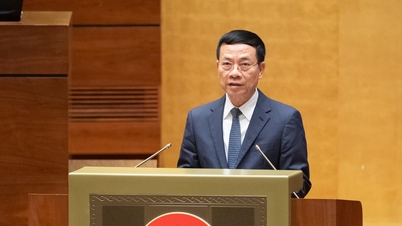



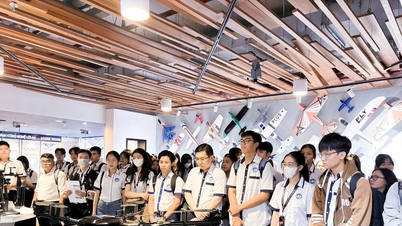
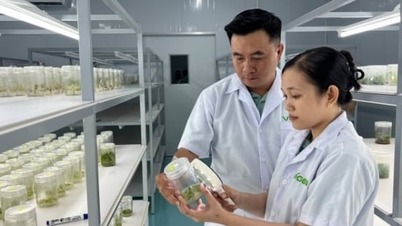
















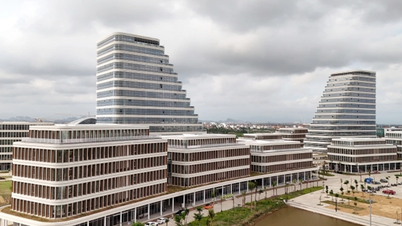

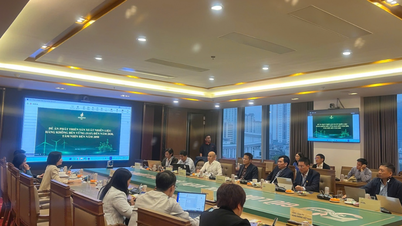























![[OFFICIAL] MISA GROUP ANNOUNCES ITS PIONEERING BRAND POSITIONING IN BUILDING AGENTIC AI FOR BUSINESSES, HOUSEHOLDS, AND THE GOVERNMENT](https://vphoto.vietnam.vn/thumb/402x226/vietnam/resource/IMAGE/2025/12/11/1765444754256_agentic-ai_postfb-scaled.png)




















































Comment (0)